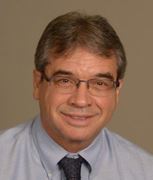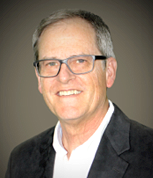|

In-Person Training
Best Practices in
Overhead Distribution
Line Design
Part of the Fall Education Institute. Learn all about structural design principles, along with hands-on design exercises, including the practical application of a design program.
This course builds on content presented in the Overhead Distribution Principles and Applications virtual course (August 23-31). It is highly recommended that attendees take both courses.
Learning Environment
All sessions incorporate real-time presentations from industry experts, Q&A, group interaction, and hands-on exercises.
Timing
Monday, October 3 – Wednesday, October 5
8:00 AM to 4:00 PM daily.
Course Overview
Overhead distribution continues to play an essential role for most utilities in delivering electric service to end-use customers either directly or as the source for underground line extensions. Overhead line design is an engineering discipline that requires the consistent and proper application of engineering principles and ethics to prepare quality designs and reduce liability exposure.
Learn how to enhance your line design processes and prepare designs that are safe, reliable, and in compliance with National Electrical Safety Code (NESC) requirements. Review industry best practices, engage with your peers, and complete over twenty-five (25) practical hands-on design exercises using line design software.
Who Should Attend Those who work at all levels of overhead distribution design including:
- Engineering managers
- Design engineers
- Design/staking supervisors and technicians
- Consulting engineers
- Crew supervisors and senior lineworkers
Course Topics
Overhead Line Design Accountabilities and Process
- Overhead line design protocols and processes
- NESC general requirements for overhead lines
- Joint use and other considerations in overhead line design
Conductor/Cable Sag, Tension, and Clearance
- NESC requirements for maximum conductor/cable sag determination
- NESC and practical requirements for maximum conductor/cable design tension
- Conductor/cable sag and tension calculations, sag-tension software, and application examples/exercises
NESC Clearance Requirements
- Clearances to ground and water surfaces; buildings and other structures; and between conductors, cables and equipment
- Selected special clearance conditions and application examples/exercises
Overhead Line Structure Loading and Strength
- NESC requirements for supporting structure design
- Determination of mechanical forces on supporting structures
- Overhead line guying and anchoring design considerations
- Supporting structure loading application examples and exercises
- Wood poles (types, treatments, dimensions, strength classes, and specifications) and manufactured poles (types, characteristics, NESC equivalent designs, and specifications)
- Pole embedment designs
Half-day Line Design Workshop
- Line design exercises, software applications and discussion
What to Bring
Participants are required to bring a laptop to work through in-class, line design application exercises and a basic engineering calculator or app.
Line Design Software
You will use the Utility Line Design Client program to perform some basic line design calculations in class. You’ll receive complimentary access to for 30 days (from the start of the course).
Sample Agenda/Learning Outcomes
Coming soon!
Course Level
Basic/Intermediate: No prerequisites; no advance preparation. For those looking for more comprehensive training, it is highly recommended that you attend this course in conjunction with the Overhead Distribution Principles and Applications virtual training being held August 23-31.
Accreditation
The following continuing education credits will be provided, after successfully completing the session (click here to review requirements). Certificates will be available by October 21.
Recommended CEUs 2/PDHs 19.5/CPEs 23.4
Field of Study: Specialized Knowledge
Instructors
 Ted Dimberio, P.E., is an accomplished engineer with over 40 years of experience in electric and telecommunication line design. He is currently President and CFO of Utility Line Design and President of Line Design University. Ted has worked in all capacities of line design including field staking, construction supervision, management, and consulting. He has been an industry leader in developing engineering software for electric distribution utilities that auto-generates profile drawings and required line design calculations to verify and document engineering decisions. Ted received his civil and structural engineering education from Mesabi State Junior College and the University of Minnesota. He is a registered Professional Engineer in the states of Minnesota and Wisconsin. Ted Dimberio, P.E., is an accomplished engineer with over 40 years of experience in electric and telecommunication line design. He is currently President and CFO of Utility Line Design and President of Line Design University. Ted has worked in all capacities of line design including field staking, construction supervision, management, and consulting. He has been an industry leader in developing engineering software for electric distribution utilities that auto-generates profile drawings and required line design calculations to verify and document engineering decisions. Ted received his civil and structural engineering education from Mesabi State Junior College and the University of Minnesota. He is a registered Professional Engineer in the states of Minnesota and Wisconsin.
 Erich Schoennagel, P.E., has cultivated over 45 years of experience in the electric industry. He is a former manager and engineer with CenterPoint Energy and managed the Transmission Project Engineering group. Erich served for 15 years as a member advisor and chairman of the Underground Transmission Task Force for the Electric Power Research Institute until his retirement from CenterPoint Energy. There he directed research related to underground transmission and superconductivity. He was a board member of the annual TSDOS symposium, and a former member of the American Concrete Institute 336 committee related to foundation design and construction. Erich Schoennagel, P.E., has cultivated over 45 years of experience in the electric industry. He is a former manager and engineer with CenterPoint Energy and managed the Transmission Project Engineering group. Erich served for 15 years as a member advisor and chairman of the Underground Transmission Task Force for the Electric Power Research Institute until his retirement from CenterPoint Energy. There he directed research related to underground transmission and superconductivity. He was a board member of the annual TSDOS symposium, and a former member of the American Concrete Institute 336 committee related to foundation design and construction.
 M. Thomas Black, P.E., is an accomplished executive manager, consultant and course instructor with more than 30 years of experience in the electric and gas utility industries. In addition to working with Collaborative Learning, Tom’s experience includes employment with both municipal and investor owned utilities across multiple jurisdictions in Colorado, North Carolina, South Carolina and Florida. He teaches a variety of courses on technical topics and also has extensive executive level experience in managing electric and gas utility systems, including serving as chief energy officer and energy delivery general manager. Tom has also served on the boards of RMEL and the Colorado Association of Municipal Utilities and is a member of the Institute of Electrical and Electronics Engineers (IEEE). M. Thomas Black, P.E., is an accomplished executive manager, consultant and course instructor with more than 30 years of experience in the electric and gas utility industries. In addition to working with Collaborative Learning, Tom’s experience includes employment with both municipal and investor owned utilities across multiple jurisdictions in Colorado, North Carolina, South Carolina and Florida. He teaches a variety of courses on technical topics and also has extensive executive level experience in managing electric and gas utility systems, including serving as chief energy officer and energy delivery general manager. Tom has also served on the boards of RMEL and the Colorado Association of Municipal Utilities and is a member of the Institute of Electrical and Electronics Engineers (IEEE).
|
